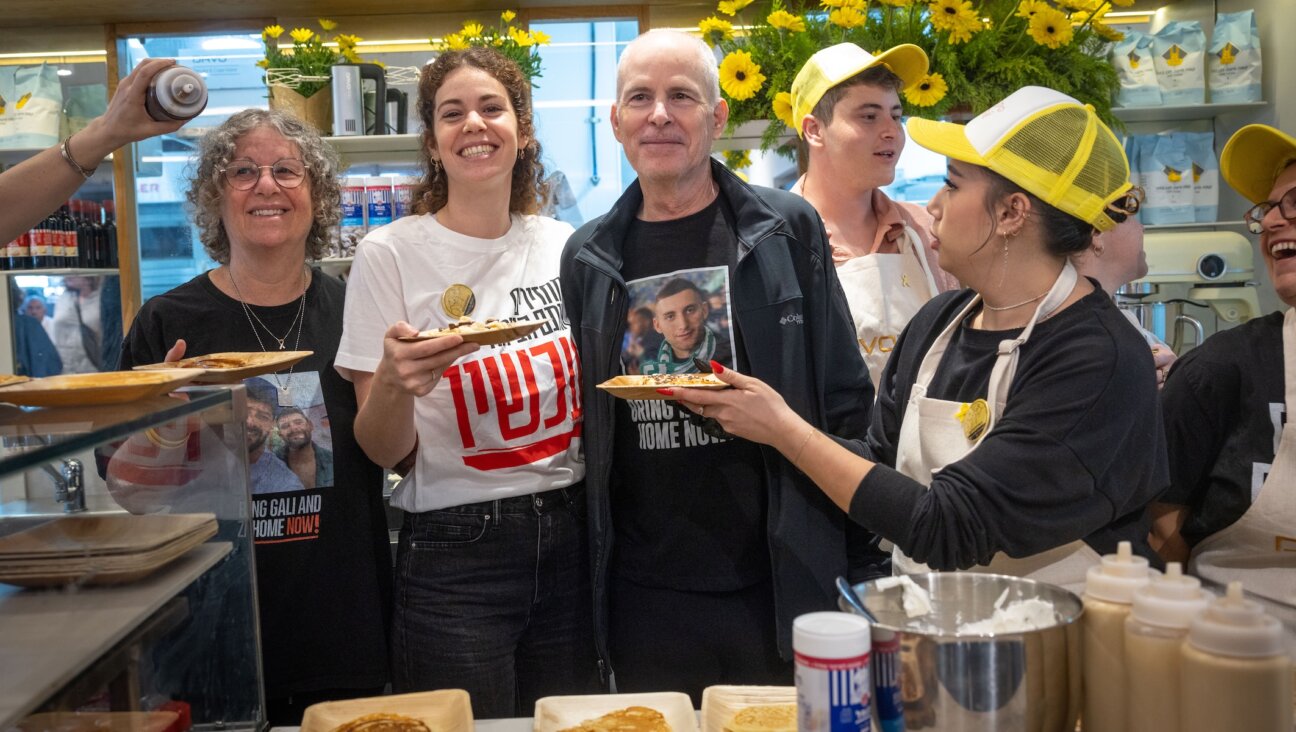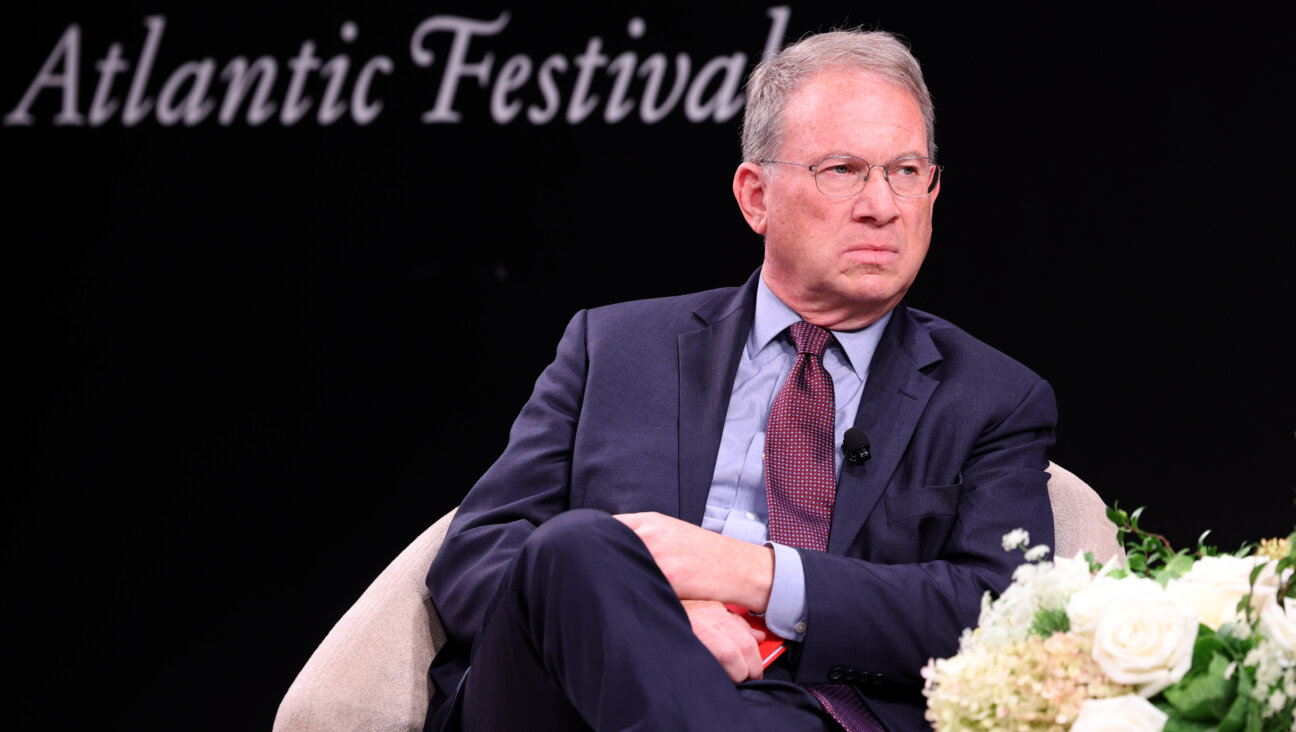A Murder Highlights Holocaust Museum’s Value

Cathedral of Memory: The United States Holocaust Memorial Museum in Washington D.C. Image by Getty Images
From its inception, the United States Holocaust Memorial Museum in Washington, D.C., has regarded itself — and been regarded by others — as a high-priority target, and for good reason. Though not a Jewish institution but a government institution, it is one of the most visible manifestations of the prominence of American Jewry — its creators — and is the cathedral of American Holocaust memory.

Cathedral of Memory: The United States Holocaust Memorial Museum in Washington D.C. Image by Getty Images
For the past 15 years, the museum has spent significant resources on security and held itself to the highest standards. Its security staff is very professional, well trained and armed. These high standards were evident on June 10 in the swiftness of the security guards’ response when a gunman determined to kill entered the museum’s main hall. Lives were saved. There may have been as many as 2,000 people in the museum that day. We deeply mourn the death of Officer Stephen Tyrone Johns, a six-year veteran of the museum’s security staff, and salute his colleagues for their immediate and effective response.
The alleged shooter, an 88-year-old white supremacist — let us not give him the dignity of a name — reminds us that danger lurks in many places and that hatred takes many forms. He hated Jews, but not only Jews. Racists seem unable to confine their hatred to only one group, and this often generates solidarity among the subjects of their hatred, for the safety of one group is inextricably linked to the safety of another, and to the effectiveness of law enforcement groups and the rule of law. He proclaimed his hatred on the Web. His heinous act is the loudest proclamation of that hatred.
We should genuinely fear a copycat killer, and other institutions must take appropriate precautions. A lone gunman willing to risk his own death seldom can be stopped. Homegrown terrorists are dangerous, as we saw in a Kansas church on May 31, when an anti-abortion rights activist murdered Dr. George Tiller, an abortion provider.
There is, right now in America, an almost perfect storm to create a climate of hatred. Economic uncertainty, loss of jobs, the erosion of economic security for the middle class and the amplification of hatred in our media, especially talk radio and cable television. In this climate Jews, but surely not only Jews — have been recently targeted: a student murdered at Wesleyan University, an alleged plot to bomb two synagogues in Riverdale, N.Y. and now the USHMM.
The attack also reminds us of the sheer power of the events of the Holocaust; the power to plead for dignity and decency, for tolerance and pluralism, and for an effective response to other genocides, and for the condemnation of antisemitism, past and present. And the power to attract those very forces the Museum seeks to combat.
The killer may have been on Holocaust overload. This is not to excuse his action, nor to suggest that the emphasis on the Holocaust is not appropriate, but merely to emphasize our contemporary reality.
Pope Benedict XVI recently visited Yad Vashem and forcibly condemned Holocaust denial and antisemitism. And while most Jews regarded his words somewhat disappointedly — they were overly intellectual, somewhat cold and devoid of autobiographic detail, especially when contrasted with those of his predecessor, Pope John Paul II — such subtlety was likely lost on the killer.
President Obama also may have been on his mind. An African-American man who is clearly brilliant and articulate accepted by the American people as their president may have been too much for a white supremacist to handle. It shatters his perception of the world, the certainty of his own twisted vision. Obama’s appointments of his female opponent as secretary of state and a female justice of Hispanic origin to the Supreme Court may fuel the perception that the America the killer embraced is swiftly disappearing. The times they are a-changin’.
The president’s forceful condemnation of Holocaust denial in Cairo was unambiguous and authoritative. So welcome to many of us, it may have been raw meat for such a man of hate. And the president’s visit to Buchenwald in the presence of the president of Germany and the chancellor of Germany, with Elie Wiesel, the most prominent survivor of Buchenwald, as their guide, was a direct refutation of his worldview. New leaders had arisen in Germany; they do not deny the past, they condemn it. The skeletonlike figure who once slept in the barracks of Buchenwald had become a world spokesman for human dignity and for embracing the diversity of God’s creations. This, too, must shatter the worldview of a man filled with hatred.
The president’s visit was America at its best. The United States Holocaust Memorial Museum is also America at its best — open; diverse; pluralistic; fighting for human dignity and decency; confronting the hatreds that resulted in the Holocaust, the hatreds that would invite its repetition.
Those who visit the museum in the aftermath of this horrendous attack should view their visit as an act of defiance, denying white supremacists and other haters their victory. The death of Johns should renew our determination to advance the causes of the museum, for which he gave his life.
Both the United States Holocaust Memorial Museum and the American Jewish Committee have established funds to honor officer Stephen Tyrone Johns and benefit his family. All proceeds will go to this family. The address of tbe Museum is 100 Raoul Walllenberg Place, SW Washington, DC 20024. The American Jewish Committee is at 165 East 56th Street, New York, New York 10022.
Michael Berenbaum was project director during the creation of the United States Holocaust Memorial Museum and is a professor of Jewish studies and director of the Sigi Ziering Institute at the American Jewish University in Los Angeles.
The Forward is free to read, but it isn’t free to produce

I hope you appreciated this article. Before you go, I’d like to ask you to please support the Forward.
At a time when other newsrooms are closing or cutting back, the Forward has removed its paywall and invested additional resources to report on the ground from Israel and around the U.S. on the impact of the war, rising antisemitism and polarized discourse.
Readers like you make it all possible. We’ve started our Passover Fundraising Drive, and we need 1,800 readers like you to step up to support the Forward by April 21. Members of the Forward board are even matching the first 1,000 gifts, up to $70,000.
This is a great time to support independent Jewish journalism, because every dollar goes twice as far.
— Rachel Fishman Feddersen, Publisher and CEO
2X match on all Passover gifts!
Most Popular
- 1

Film & TV What Gal Gadot has said about the Israeli-Palestinian conflict
- 2

News A Jewish Republican and Muslim Democrat are suddenly in a tight race for a special seat in Congress
- 3

Culture How two Jewish names — Kohen and Mira — are dividing red and blue states
- 4
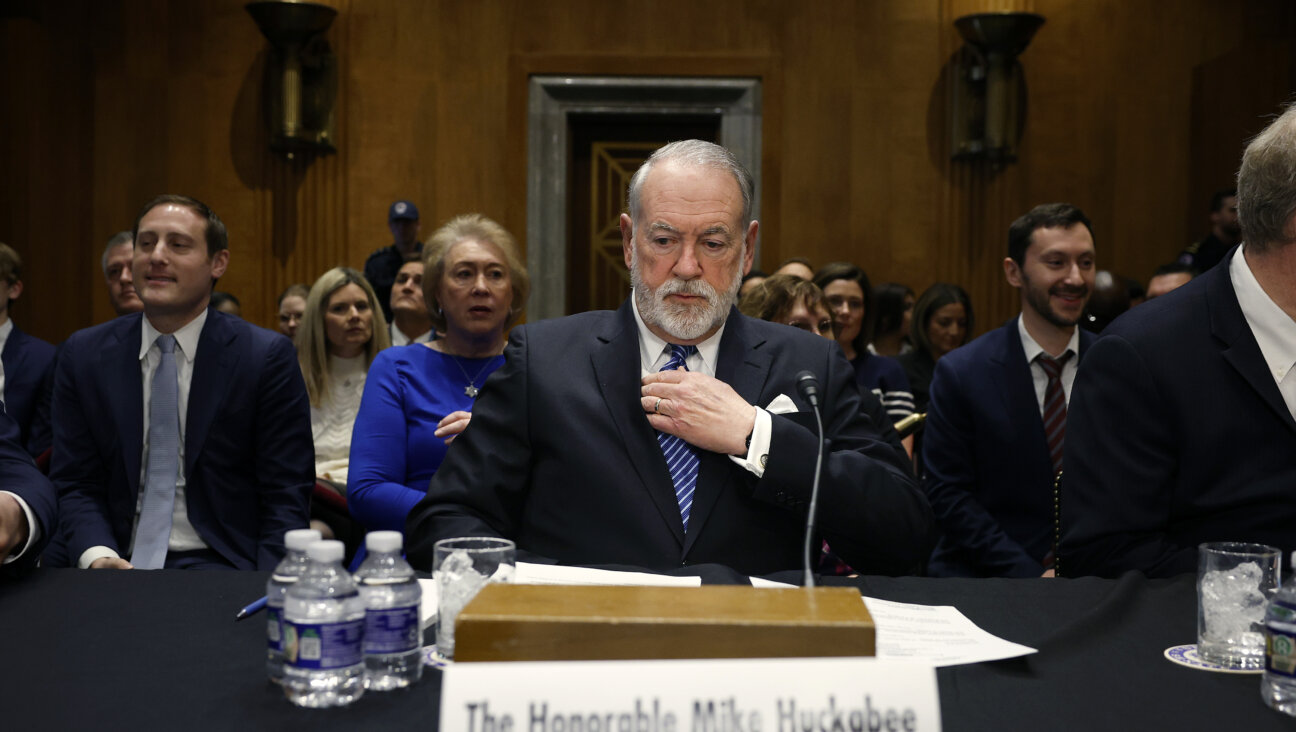
Opinion Mike Huckabee said there’s ‘no such thing as a Palestinian.’ It’s worth thinking about what that means
In Case You Missed It
-
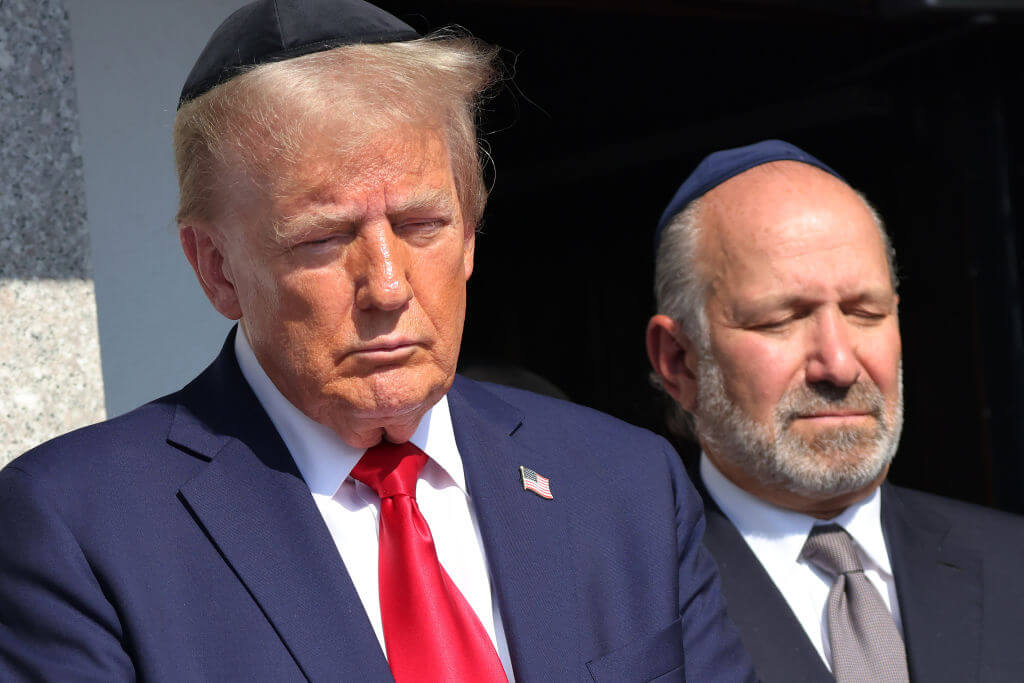
Fast Forward Trump’s plan to enlist Elon Musk began at Lubavitcher Rebbe’s grave
-
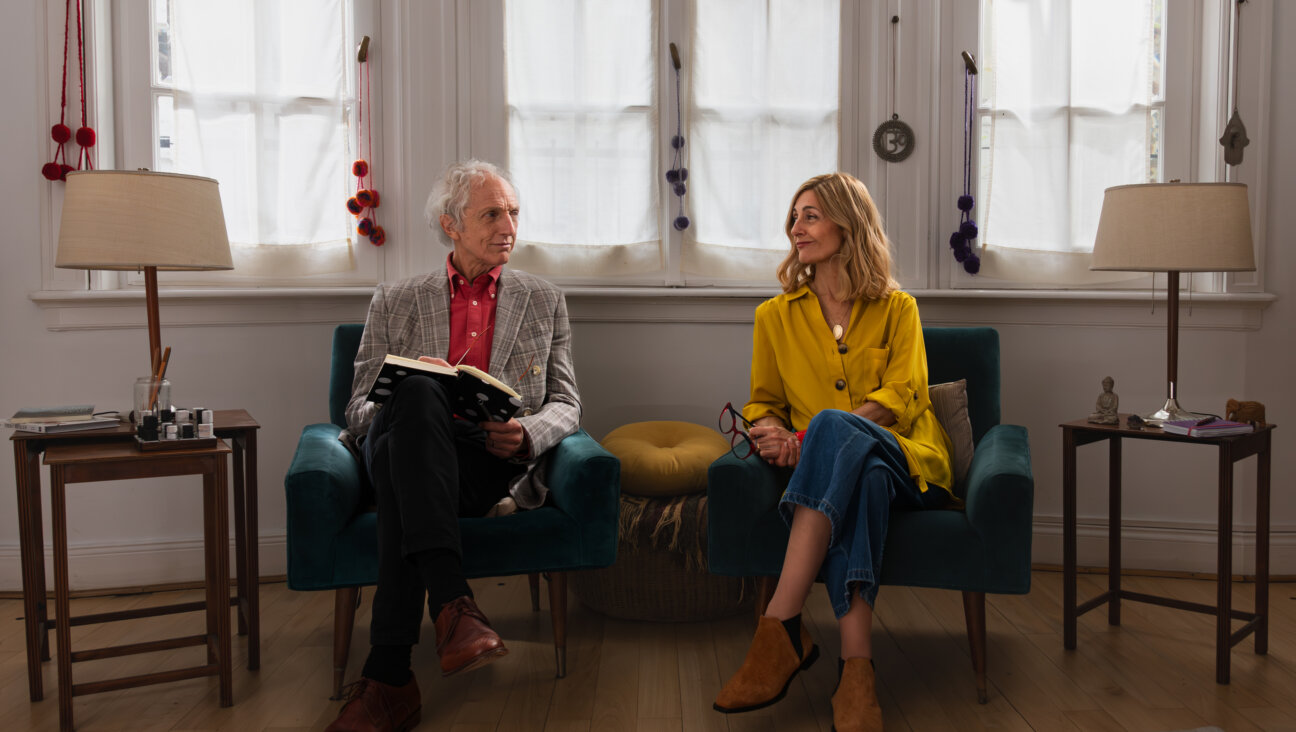
Film & TV In this Jewish family, everybody needs therapy — especially the therapists themselves
-
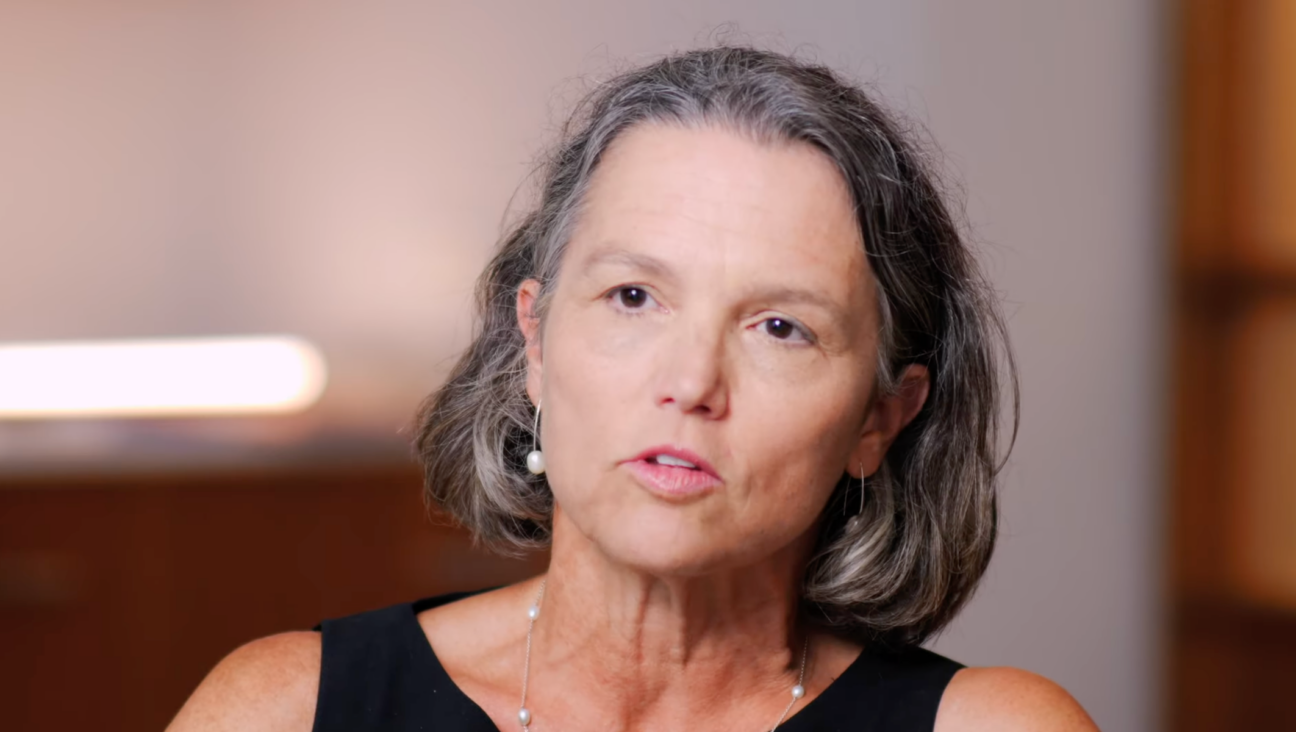
Fast Forward Katrina Armstrong steps down as Columbia president after White House pressure over antisemitism
-
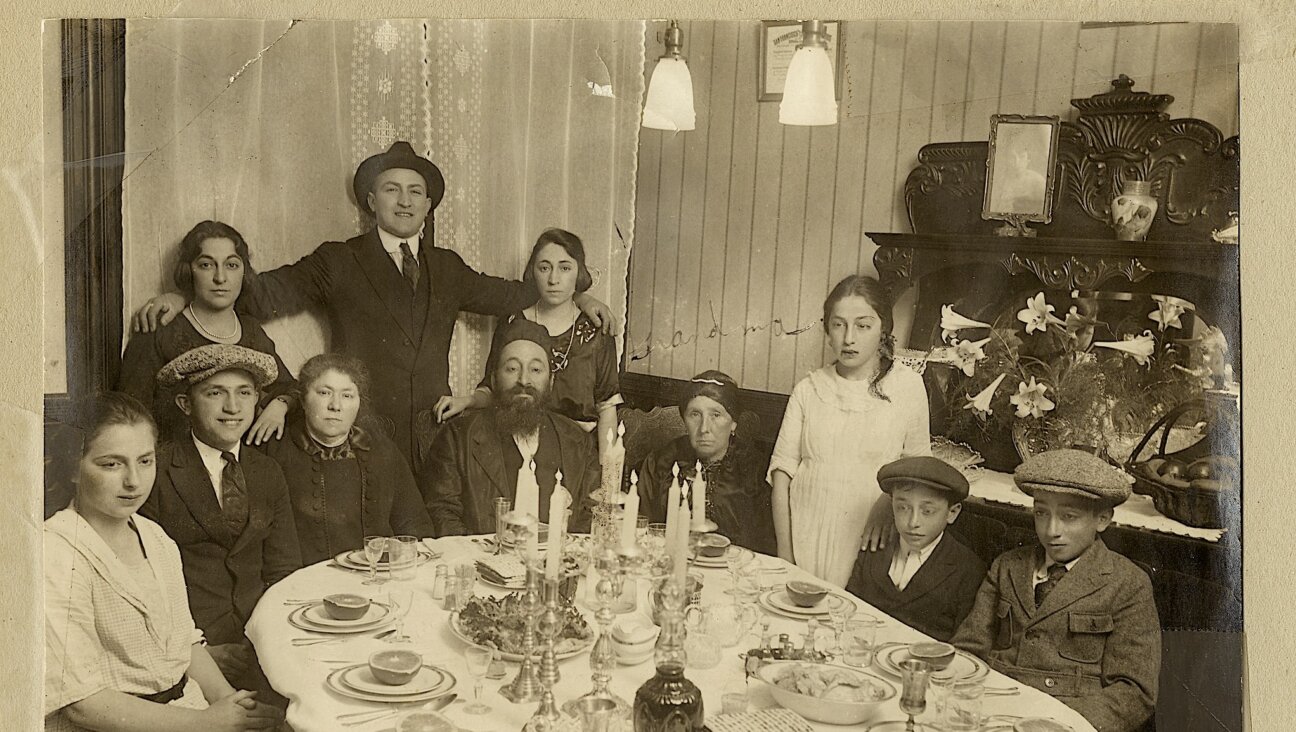
Yiddish אַ בליק צוריק אויף די פֿאָרווערטס־רעקלאַמעס פֿאַר פּסח A look back at the Forward ads for Passover products
קאָקאַ־קאָלאַ“, „מאַקסוועל האַוז“ און אַנדערע גרויסע פֿירמעס האָבן דעמאָלט רעקלאַמירט אינעם פֿאָרווערטס
-
Shop the Forward Store
100% of profits support our journalism
Republish This Story
Please read before republishing
We’re happy to make this story available to republish for free, unless it originated with JTA, Haaretz or another publication (as indicated on the article) and as long as you follow our guidelines.
You must comply with the following:
- Credit the Forward
- Retain our pixel
- Preserve our canonical link in Google search
- Add a noindex tag in Google search
See our full guidelines for more information, and this guide for detail about canonical URLs.
To republish, copy the HTML by clicking on the yellow button to the right; it includes our tracking pixel, all paragraph styles and hyperlinks, the author byline and credit to the Forward. It does not include images; to avoid copyright violations, you must add them manually, following our guidelines. Please email us at [email protected], subject line “republish,” with any questions or to let us know what stories you’re picking up.









